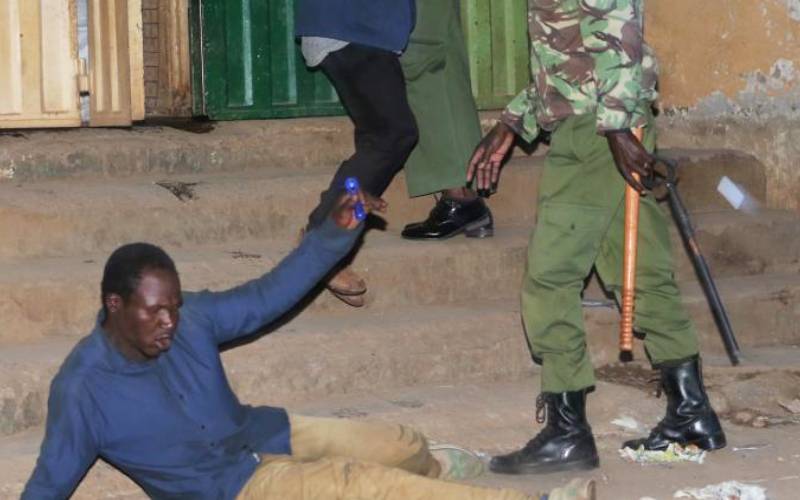×
The Standard e-Paper
Stay Informed, Even Offline

Police officers battle with businessmen found operating after 7pm in Eldoret town. The officers accused them of defying the state-ordered curfew meant to prevent the spread of coronavirus. [Peter Ochieng]
'Stay at home'. Not used to being idle, they wonder why they have been ordered to not go to work